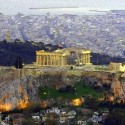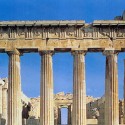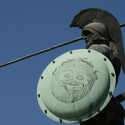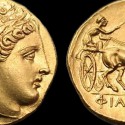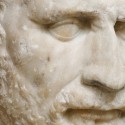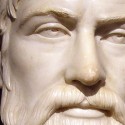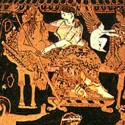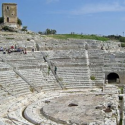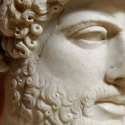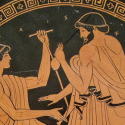The Ancient Greece
1.1 The City-State in the classical world
Posted on by A. Palma
The Greek word polis, from which words such as political, in the classical sense meant "a state that governs itself". The greatest polis, Athens, had a surface area of about 1700 sq km. Call it the City-State meant give it an improper definition for two reasons:
1.2 Athens
Posted on by A. Palma
At the outbreak of the Peloponnesian War in 431, only a third of the Athenian citizens were living in the urban area. Non-citizens are free, excluded by law from land ownership, were concentrated in the city and the port, as well as most of the slaves. The consequence
1.3 Sparta
Posted on by A. Palma
If you consider how much has been written about in ancient Sparta, the picture is surprisingly contradictory, confused and incomplete. In part this is because the mirage continually intersects the reality, deforming and often hiding it altogether; in part because the Spartans were
1.4 The decline of the Polis
Posted on by A. Palma
After the battle of Chaeronea 338, Philip II of Macedonia was in fact become lord of Greece, excluding Sicily and other western cities. He called on all states to Corinth, at a congress in which it was founded
1.5 Literature
Posted on by A. Palma
In Athens, the population could read and write and do arithmetic. Education, if we exclude the military training, it was the duty of the State, but private activity, and up to the middle of the fifth century, widespread teaching came to a halt at the elementary level. The
1.6 Poetry
Posted on by A. Palma
The poetic form was used for philosophical and political writings. Among the earliest examples of poetry is that of Solon, who expressed his political and moral in elegiac couplets. At the end of the sixth century there was Xenophanes that
1.7 The Tragedy
Posted on by A. Palma
It was Athens, the democratic city-state par excellence, who created and sponsored the tragedy, an art form that immediately received the place of honor, after Homer, on any other poetic form, not only among the Athenians, but among the Greeks in general. Plutarch
1.8 The Comedy
Posted on by A. Palma
In 1958 the publication of a papyrus written in the third century AD. made known to us the text of Dyscolos or Misanthrope, a play between the first and the least important of the Athenian poet Menander, born in 342 the 341. First
1.9 The prose
Posted on by A. Palma
The production prose was essentially of a technical nature: philosophy, Law and policy, science and technology. Only history has a special place as later oratory. For a long time, the interest of the Greeks towards the past was satisfied from the repertoire
1.10 The Science
Posted on by A. Palma
At the end of the fourth century, a Greek had an adequate vocabulary to describe a man as architect, mathematical, meteorologist, medical Botanist, but could not translate the modern word "scientist" than to say "philosopher" or "physical". If he knew Aristotle,
- 1
- 2

